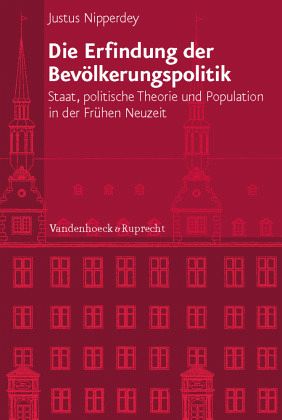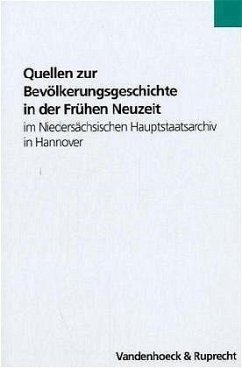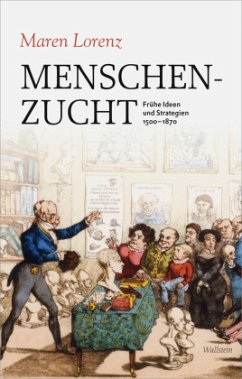
Die Erfindung der Bevölkerungspolitik
Staat, politische Theorie und Population in der Frühen Neuzeit. Dissertationsschrift
Versandkostenfrei!
Versandfertig in 2-4 Wochen
160,00 €
inkl. MwSt.

PAYBACK Punkte
0 °P sammeln!
Die Bevölkerungsgröße wurde erst im Laufe der Frühen Neuzeit zu einem Thema der Politik. Politische Theoretiker in Deutschland übernahmen um 1600 die in Italien entwickelte Vorstellung, der Staat müsse sich um die Bevölkerungsentwicklung kümmern. Die Forderung nach einer expansiven Bevölkerungspolitik kam somit schon vor den Verwüstungen des Dreißigjährigen Krieges auf. Diese zuerst in gelehrten Werken vertretene Idee setzte sich im Laufe des 17. Jahrhunderts immer mehr durch und wurde zu einem Kernbestand des Kameralismus. Daraus entwickelte sich schließlich der Populationismus d...
Die Bevölkerungsgröße wurde erst im Laufe der Frühen Neuzeit zu einem Thema der Politik. Politische Theoretiker in Deutschland übernahmen um 1600 die in Italien entwickelte Vorstellung, der Staat müsse sich um die Bevölkerungsentwicklung kümmern. Die Forderung nach einer expansiven Bevölkerungspolitik kam somit schon vor den Verwüstungen des Dreißigjährigen Krieges auf. Diese zuerst in gelehrten Werken vertretene Idee setzte sich im Laufe des 17. Jahrhunderts immer mehr durch und wurde zu einem Kernbestand des Kameralismus. Daraus entwickelte sich schließlich der Populationismus des 18. Jahrhunderts, der eine mit allen Mitteln forcierte Bevölkerungsvergrößerung forderte und den Erfolg jeglicher Politik allein am demografischen Wachstum maß. Justus Nipperdey erforscht mit seiner Arbeit erstmals die Entstehung des bevölkerungspolitischen Konzepts im Italien des 16. Jahrhunderts, seine Übernahme in die politische Theorie im Alten Reich und seine Verbreitung von den gelehrten lateinischen Politikkompendien in deutschsprachige Traktate.
Dieser Artikel kann nur an eine deutsche Lieferadresse ausgeliefert werden.













